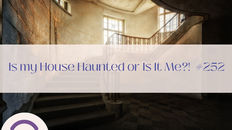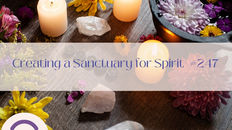Reiki Clinical Trials
- Christina Wooten

- Oct 15, 2015
- 8 min read

Introduction to Reiki
Reiki (pronounced Ray-key) is a Japanese form of touch (or no touch as guided) energy therapy, which transmit Universal Life Force Energy to your energy body, returning the chakras (energy centers) and meridians (energy pathways) to optimal functioning.
Chakra is a sanskrit word, meaning "Wheel of Light". These energy portals within our human energetic manifestation convert and distribute life force energy (also known as Ki, Chi, or Prana) within our energetic framework. Our Chakras play a vital role in our emotional, mental, spiritual, and physical health. The Chakras and meridians and by extension the Auric field, allow our mind/body/spirit connection to flow in harmony with one another.
Healthy Chakra functioning can be impeded by stress, trauma, neglect of needs, limiting or fearful thought patterns, unhealthy attachments, and destructive patterns. Chakra disfunction will always demonstrate symptoms of imbalance in order to draw attention to the imbalance for healing purposes. These symptoms manifest in a variety of unique ways for each individual. Should you notice a change in your Spiritual, Mental, Emotional, or Physical condition that is not serving you, this is often your personal invitation to seek healing.
Usui Reiki is the original form of Japanese Reiki healing and is demonstrated by practitioners all over the world with profound results. Reiki energy brings forth Universal Life Force Energy into the energy system of a recipient. The perfect frequency for Reiki for each person is guided by Divine Spiritual Consciousness, ensuring that each recipient receives the optimal frequency for their highest healing at the moment of transmission. Healing sessions are very relaxing, and during a session, many recipients report wonderful experiences of deeper connection with their own energetic awareness, supportive meditations, seeing colors, feeling a variety of sensations, and many drift off to sleep or an in-between conscious state as they reach greater depths of healing. A Reiki treatment is a process of clearing out disruptions, recharging and rejuvenation current flow of energy with Universal Life Force, release of stagnant energy, and an activation of healing that often has long lasting effects.
Reiki and Traditional Medicine in the
United States:
Many hospital programs offer Reiki, generally as a part of their Integrative Medicine programs.
There are too many to list in this specific format, although the greatest concentration is within the Northern States.
* Yale-New Haven Hospital uses an ongoing clinical Reiki program on the cardiac units by a subset of Reiki-trained nurses.
* In 2000, Dr. Mehmet Oz pioneered the use of Reiki practitioners within the operating room, when he brought a Reiki practitioner into the OR to treat an Open Heart surgery patient at Columbia Presbyterian Hospital. This is now a more common treatment option.
* Department of Vetrans Affairs uses Reiki in the Hepatitis C treatment program.The United States military uses Reiki in the Fort Bliss Warrior Resilience Program, designed to treat PTSD.
* The use of Reiki in Radiation Oncology was presented at the 2009 ASRT Radiation Therapy Conference.
* Listed as as appropriate form of complementary treatment on many health care sites, including the American Cancer Society website (cancer.org) and Mesothelioma.com
Reiki Clinical Trials
An Introductory note about Reiki and Clinical Trials from your Editor:
It is significant to note that most Reiki clinical trials involve using a "standardized" Reiki treatment experience (so it may be tested against a sham Reiki counterpart). The standardized Reiki treatment is a deviation from how Reiki is normally practiced. This standardization also limits specific techniques which are known to be incredibly effective with managing or eliminating specific symptoms. Reiki, in practice, is focused on the specific energy needs of each individual and adjusts to treat the deficiencies one manifests. Despite these limitations, these Clinical trials have exhibited very positive results!
Subject: Integrative Cancer Therapy
Pilot crossover trial of Reiki vs. rest for treating cancer-related fatigue conducted by the Department of Psychology, University of Calgary in Alberta, Canada
Study:
"Fatigue is an extremely common side effect experienced during cancer treatment and recovery. Limited research has investigated strategies stemming from complementary and alternative medicine to reduce cancer-related fatigue. This research examined the effects of Reiki, a type of energy touch therapy, on fatigue, pain, anxiety, and overall quality of life. This study was a counterbalanced crossover trial of 2 conditions: (1) in the Reiki condition, participants received Reiki for 5 consecutive daily sessions, followed by a 1-week washout monitoring period of no treatments, and 2 additional Reiki sessions, and finally 2 weeks of no treatments, and (2) in the rest condition, participants rested for approximately 1 hour each day for 5 consecutive days, followed by a 1-week washout monitoring period of no scheduled resting and an additional week of no treatments. In both conditions, participants completed questionnaires investigating cancer-related fatigue (Functional Assessment of Cancer Therapy Fatigue subscale [FACT-F]) and overall quality of life (Functional Assessment of Cancer Therapy, General Version [FACT-G]) before and after all Reiki or resting sessions. They also completed a visual analog scale (Edmonton Symptom Assessment System [ESAS]) assessing daily tiredness, pain, and anxiety before and after each session of Reiki or rest."
Participants:
Sixteen patients (13 Women) participated in the trial: 8 were randomized to each order of conditions. They were diagnosed with a variety of cancers, most commonly colorectal (62.5%) cancer, and had a median age of 59 years.
Results:
Fatigue on the FACT-F assessment scale decreased within the Reiki condition over the course of all 7 treatments. In addition, participants in the Reiki condition experienced significant improvements in quality of life compared to those in the resting condition (based on scores from FACT-G). On daily assessments in the Reiki condition, presession 1 vs. postsession 5 scores indicated significant decreases in tiredness, pain, and anxiety, which were not seen in the resting condition.
Subject: Autonomic nervous system changes during Reiki treatment: a preliminary study
A pilot study conducted by the Institute of Neurological Sciences, South Glasgow University Hospital Trust in Scotland, UK - results published Dec, 2004
Study:
Objective to investigate if a complementary therapy, Reiki, has any effect on indices of autonomic nervous system function. Study design - Blind trial. Setting: Quiet room in an outpatient clinic.
There were three treatment conditions: no treatment (rest only); Reiki treatment by experienced Reiki practitioner; and placebo treatment by a person with no knowledge of Reiki and who mimicked the Reiki treatment.
Quantitative measures of autonomic nervous system function such as heart rate, cardiac vagal tone, blood pressure, cardiac sensitivity to barareflex, and breathing activity were recorded continuously for each heartbeat. Values during and after the treatment period were compared with baseline data.
Subjects:
Fourty-five subjects assigned at random into the three treatment groups.
Results:
Heart rate and diastolic blood pressure decreased significantly in the Reiki group compared to both placebo and control groups.
Study: Long-term effects of energetic healing on symptoms of psychological depression and self-perceived stress
Results published May-June 2004
Study:
The long-term effects of energetic healing were examined in an experimental design employing a 3 x 3 factorial MANOVA on symptoms of psychological depression and self-perceived stress as measured by the Beck Depression Inventory, Beck Hopelessness, and Perceived Stress scales. Forty-six participants were randomly assigned to 1 of 3 : hands-on Reiki, distance Reiki, or distance Reiki placebo, and remained blind to treatment condition.
Each participant received a 1 to 1.5 hour treatment each week for 6 weeks.
Subjects:
Fourty-six participants. Pretest data collected prior to treatment demonstrated no preexisting significant differences among groups.
Results:
Upon completion of treatment, there was a significant reduction in symptoms of psychological distress in treatment groups as compared with controls, and these differences continued to be present 1 year later.
Study: A phase II trial of Reiki for the management of pain in advanced cancer patients
Study conducted by Faculty of Nursing and International Institute for Qualitative Methodology, University of Alberta, Edmonton, Alberta, Canada. Published Nov 2003
Study:
This trial compared pain, quality of life, and analgesic use in a sample of patients with cancer pain who received either standard opioid management plus rest (Group A) or standard opioid management plus Reiki (Group B).
Participants either rested for 1.5 hour on Days 1 and 4 or received two Reiki treatments (Days 1 and 4) one hour after their first afternoon analgesic dose. Visual analogue scale (VAS) pain ratings, blood pressure, heat rate, and respirations were obtained before and after each treatment/rest period. Analgesic use and VAS pain scores were reported for 7 days. Quality of life was assessed on days 1 and 7.
Twenty four participants.
Results:
Participants in Group B (Opioid and Reiki group) experienced improved pain control on Days 1 and 4 following treatment, compared to Group A (Opioid and Rest group), and improved quality of life.
Pilot Crossover trial of Reiki vs. rest for treating cancer-related fatigue
Study conducted by Department of Psychology, University of Calgary, Alberta, Canada. Published March 2007
Study:
This research examined the effects of Reiki on fatigue, pain, anxiety, and overall quality of life. This study was a counter balanced crossover trial of 2 conditions: (1) in the Reiki condition, participants received Reiki for 5, consecutive, daily sessions, followed by a 1-week washout monitoring period of no treatments, then 2 additional Reiki sessions, and finally 2 weeks of no treatments, and (2) in the rest condition, participants rested for approximately 1 hour each day for 5, consecutive days, followed by a 1-week washout monitoring period of no scheduled resting and additional week of no treatments. In both conditions, participants completed questionnaires investigating cancer-related fatigue (FACT-F scale) and overall quality of life.
Assessment of Cancer Therapy, General Version (FACT-G_ before and after all Reiki or resting sessions. They also completed a visual analog scale (Edmonton Symptoms Assessment System) assessing daily tiredness, pain, and anxiety before and after each session of Reiki or rest.
Sixteen participants (13 women) participated
Results:
Fatigue decreased within the Reiki condition (P=.05) over the course of all 7 treatments. In addition, participants in the Reiki condition experienced significant improvements in quality of life compared to those in the resting condition (P<.05). On daily assessments in the Reiki condition pre-session 1 vs. post-session 5 scores indicated significant decreases in tiredness (P<.001), pain (P<.005), and anxiety (P<.01), which were not seen in the resting condition
Effects of Reiki on autonomic activity early after Acute Coronary Syndrome
Study Conducted by Section of Cardiology, Department of Internal Medicine, Yale University, School of Medicine
Published in 2010
Study:
Autonomic dysfunction, as measured by heart rate variablitiy (HRV), predicts outcome after myocardial infarction.
To determine whether Reiki treatment would improve HRV in patients recovering from acute coronary syndrome (ACS), inpatients within 72 hours were randomized to recieve Reiki, a classical music intervention, or resting control while undergoing continuous electrocardiographic monitoring via a Holter monitor.
Throughout baseline and intervention phases, patients lay supine in bed, and quiet was maintained. During resting control, patients continued to lie quietly. For the Reiki arm, a Reiki-trained clinical nurse placed his or her hands lightly on the subject's head and torso in 7 standardized positions. A second control arm, purported to induce relaxation but without elements of human touch, included meditative music with tempos slower than normal resting heart rates, known to decrease heart rate, blood pressure, and catecholamines.
Emotional state was queried by a 10 point Likert scale.
Mean age of participants was 60, 72% men. Excluded from study were patients with conditions precluding HRV measurement or altering HRV or with life-threatening conditions.
Results:
The mean HF HRV increased significantly from baseline in the Reiki group but did not appreciably change in the control group and was decreased slightly overal in the music control group. The change with Reiki was significantly greater than that with music control or resting control. The mean R-R interval increase with Reiki treatment was significantly greater than with music control, but not greater than with resting control. Reiki treatment was associated with an increase from baseline in mean Likert scale score for all positive emotional states (happy, relaxed, calm) and reductions for all negative states (stressed, angry, sad, frustrated, worried, scared, anxious). Changes in emotional state trended from most positive emotional change with Reiki treatment to least positive emotional change with resting control, with music intermediate. The magnitude of the Reiki effect on HF HRV seen was similar to that of propranolol in the BHAT (Beta Blocker Heart Attack Trial). These findings suggest a potential clinical role for Reiki in the post-ACS inpatient setti
The following have been researched and compiled by Christina Wooten. ©2011 All Rights Reserved.











































Comments